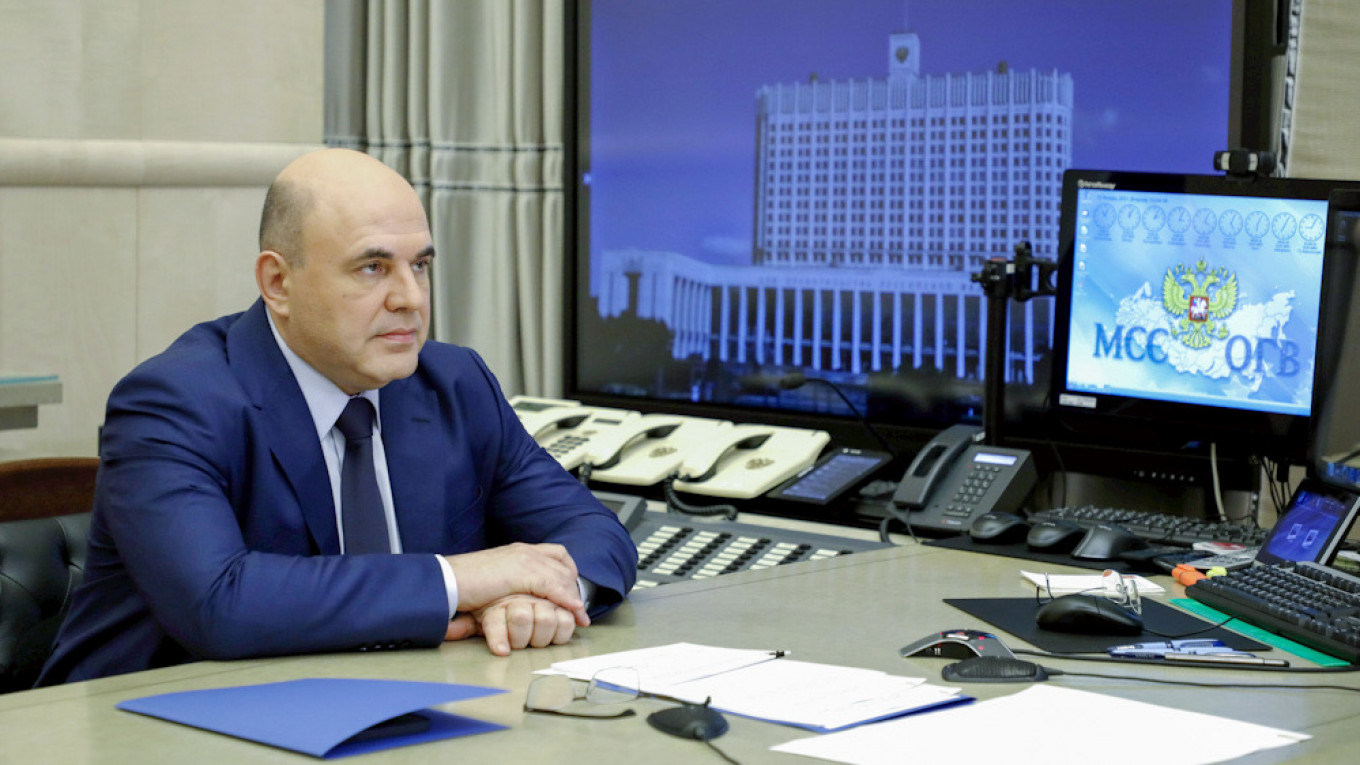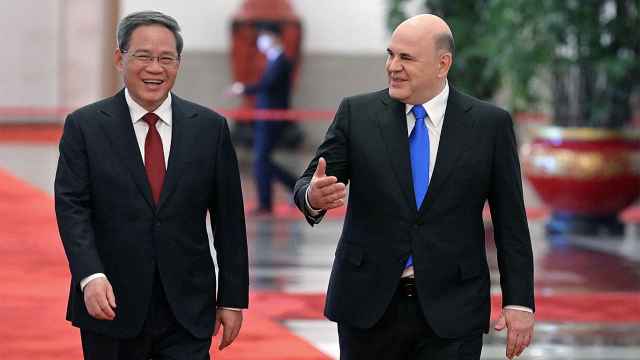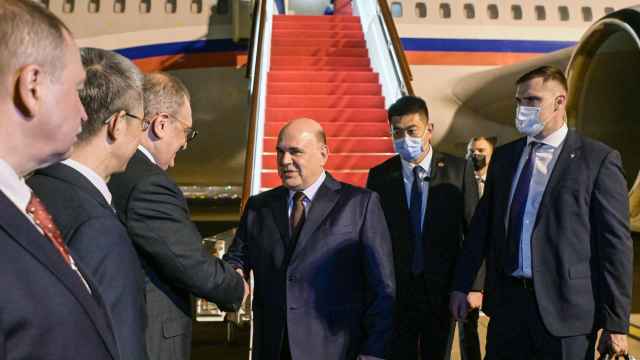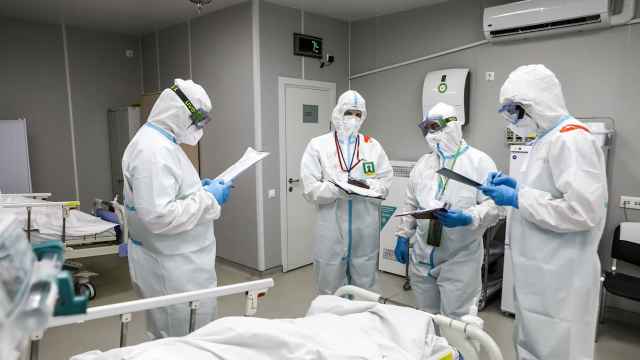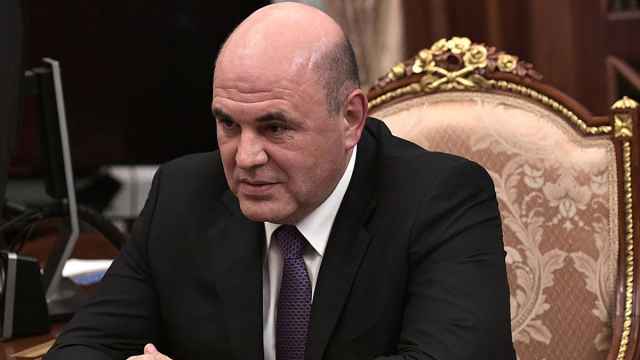When President Vladimir Putin named little-known former tax chief Mikhail Mishustin as his prime minister a year ago, he stunned the country.
In replacing Dmitry Medvedev — a political heavyweight and former president, but one tarnished by allegations of serious corruption — Putin had chosen a man few in Russia or abroad had even heard of.
“Not one prognosticator would have named him as a potential successor,” Andrei Kolesnikov, head of the Russian Domestic Politics and Political Institutions Program at the Carnegie Moscow Center think tank, wrote in a recent report.
Prior to his ascension to the number two spot in Russian politics, Mishustin’s name had barely appeared in the international press. The Financial Times had once profiled the tax service he had headed for a decade, winning plaudits for his commitment to technological modernisation of the department, but Mishustin himself was a virtual unknown.
Even in his home country the talented technocrat with a background in IT and a gift for making the right connections at the right time was anything but a household name.
Nevertheless, despite being initially seen by some as a placeholder prime minister, in the year since his appointment Mishustin has seen his star rise, asserting his control over government appointments while seeing his popularity tick upwards to rival even his boss.
While Mishustin’s top-level government career is still young, some experts are predicting he might be destined for a long career at the summit of Russian politics.
Initially appointed as a proven administrator with a mandate to deliver Russia’s National Projects — a $360-billion package of ambitious spending pledges to develop the country’s infrastructure and raise living standards — Mishustin’s term has instead so far been dominated by the coronavirus pandemic.
In some ways, this has been a blessing in disguise for the new prime minister. With Putin suspending public appearances in favour of TV addresses and retreating into a strict personal quarantine regime amid the pandemic, responsibility for tackling the virus has been delegated to lower-ranking officials in central and regional government.
As such, the pandemic has represented an opportunity for figures like Mishustin and Moscow mayor Sergei Sobyanin — with whom the prime minister is reported to be close — to have valuable time in the public eye. Mishustin, Sobyanin and many of Russia’s regional governors have all enjoyed noticeable boosts in their popularity during the coronavirus crisis.
In November, Mishustin’s new influence in the corridors of Russian power was demonstrated in a mini-reshuffle, with the prime minister dismissing a string of mid-level cabinet members and replacing them with business-minded technocrats. In short, with people like himself.
According to some experts, Mishustin’s raised public profile is likely to outlast the pandemic.
In a recent essay for the Carnegie Center, political analyst Tatiana Stanovaya described Putin as a president increasingly distant from domestic issues, and focussed instead on grander matters of foreign policy and his own personal legacy.
In his place, she argued, the “collective Putin” — the mass of bureaucrats and junior officials responsible for the day-to-day running of the country — has assumed many of the functions of office, carrying out what they imagine the president’s will to be. Naturally, the chief of Russia’s newly empowered bureaucracy is Mishustin.
“Power vertical”
The possible implications for Russia’s — and Mishustin’s — future are enormous.
Since Putin became president in 2000, Russia’s political system, organised as a so-called “power vertical,” has been intensely hierarchical, with authority and prestige channelled towards the president and away from lesser office-holders.
As a result, of the five prime ministers to have served under Putin, most have tended to be eclipsed by the president, with their popularity ebbing and flowing with his.
Even Medvedev — who served for four years as president in his own right — saw his job approval rise with Putin’s amid patriotic euphoria after the 2014 annexation of Crimea before again falling in concert after a deeply unpopular 2018 pension reform.
By contrast, Mishustin’s job approval rating — which typically hovers just under 60% in reliable independent polling — has begun, tentatively, to diverge from the president’s.
According to polls by the Levada Center, from September to November Putin’s job approval dropped from 69% to 65%, while in the same surveys Mishustin’s rose by a single percentage point to 58%, making him easily the most widely approved-of politician in Russia, bar Putin himself.
According to Abbas Gallyamov, a political consultant and former Kremlin speechwriter, Mishustin’s strong polling may indicate that the prime minister has succeeded in carving out an independent political brand among Russian voters, one that may leave him well-placed for future promotions.
“The current swings in the Putin-Mishustin numbers might indicate that the latter is seen not only as a complement to the National Leader, but increasingly as his possible successor,” wrote Gallyamov in a recent op-ed for The Moscow Times.
Discussion of succession may yet be premature. With the passage of last summer’s constitutional amendments, Putin is now legally entitled to remain in office until 2036. Even so, there is no guarantee that the 68 year-old president will serve out his remaining terms, and may instead use the additional time to plan his early departure from office.
Either way, there is little doubt that Mishustin will continue to exhibit the absolute loyalty to the president that has served him well up to now. In a widely reported exchange during a November visit to a Moscow-region nuclear research institute, Mishustin took exception to a researcher’s reference to Putin as his “colleague.”
“Not my colleague,” the prime minister corrected the scientist, “but our leader.”



